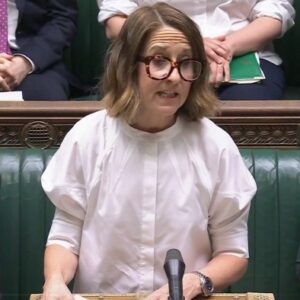
Unlock the White House Watch newsletter for free
Your guide to what the 2024 US election means for Washington and the world
The head of Columbia University resigned on Friday following fierce criticism of the Ivy League institution’s decision to cede to President Donald Trump’s demands for reforms.
Katrina Armstrong, who was appointed after Minouche Shafik stepped down last August, will be replaced as interim president by Claire Shipman, a Columbia graduate who joined the board of trustees in 2013.
Federal government officials suspended $400mn in grants to Columbia this month and threatened to suspend all future funding unless the university agreed to actions it claimed were necessary to tackle alleged antisemitism on campus.
Columbia decided not to challenge the demands despite arguments from legal scholars that the government’s actions failed to respect due process, and faculty’s concerns that they threatened academic independence and freedom of speech.
It unveiled concessions while arguing it continued to defend academic integrity. “We will always be guided by our principles of free expression, academic freedom and the pursuit of excellence,” Armstrong said at the time.
Armstrong, who will resume her prior role as head of the University’s Irving Medical Center, on Friday said: “I am proud to have worked with extraordinary faculty, students, and alumni. But my heart is with science, and my passion is with healing. That is where I can best serve this university and our community moving forward.”
Shipman said: “Columbia’s new permanent president, when that individual is selected, will conduct an appropriate review of the university’s leadership team and structure to ensure we are best positioned for the future.”
Armstrong was squeezed between the need to protect the university from further attacks and funding cuts, and pressure from faculty and students over measures to meet the government’s demands.
Faculty have complained they were not adequately consulted and their decisions were overruled. Students, meanwhile, faced tightened security on campus and concern over the arrest and deportation threat of current and former students led by Mahmoud Khalil, an activist who participated in protests against Israel’s military assault in Gaza.
Armstrong earlier this week said: “We need to continue to work to restore the public’s faith of the fundamental value of higher education for the nation and the long-standing partnership between groundbreaking universities like Columbia and the federal government. Any suggestion that these measures are illusory, or lack my personal support, is unequivocally false.”
Columbia’s trustees thanked Armstrong and, in a defence of their recent decisions, said: “Our goal has been to demonstrate the significant advances we’ve made, discuss the plans for the months ahead, and present Columbia-driven decisions made in accordance with our values and our mission. Where this work aligns with recommendations of others, we believe constructive dialogue makes sense.”
The university sought to prevent lawsuits challenging the Trump administration’s actions. But earlier this week two national organisations representing university teachers and professors launched a lawsuit against the government’s demands.
The White House has yet to restore the $400mn grant to Columbia, and has stepped up attacks on other universities.



